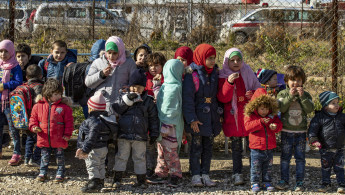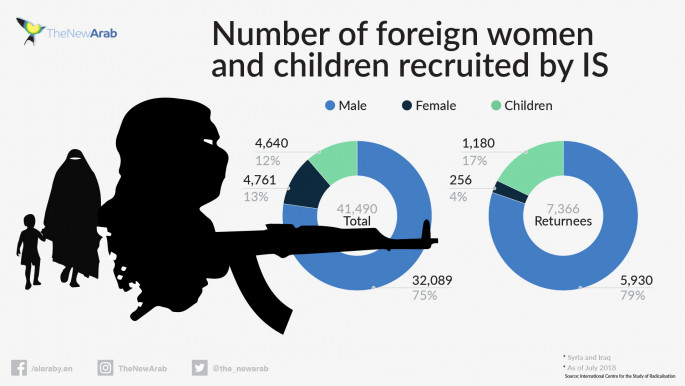The children, including some from France, Egypt and Dagestan, were only a fraction of the 224 orphans living in Al-Hol camp, home to thousands of relatives of Islamic State group fighters.
They were transferred to the Kurdish-run settlement of Roj, also in northeast Syria, said Jaber Mustafa, an official at Al-Hol.
He did not say why only 21 orphans were being transferred but argued that Roj is better equipped to host orphans.
"The child care centres in Al-Hol lack many basic services," including trained specialists and educators, he said.
Two French orphans are among those being transferred, said another camp official who asked not to be named because he was not authorised to speak on the issue.
They will be handed to a representative of the French government who will then repatriate them, the official added, without providing a timeline.
The repatriation, according to the official, is taking place at the request of Paris.
Kurdish authorities say they are holding around 12,000 foreigners from countries other than Iraq, including 4,000 women and 8,000 children, in three displacement camps in northeastern Syria. The majority are being held in Al-Hol.
The fate of foreign jihadists and their relatives detained in the Kurdish region of Syria has been a politically difficult issue for their own governments.
Countries such as France and Belgium that have large contingents of nationals in such camps have been reluctant to bring them home, while the Kurds warn they cannot keep them much longer.
France has so far allowed some children back on a case-by-case basis.
UN investigators this month called for at least the children to be repatriated, notably because their lack of papers put them in a "particularly precarious" situation.
A Kurdish Red Crescent spokesperson told AFP this month that 371 children were among the 517 people who died in Al-Hol in 2019.
Malnutrition, poor healthcare for newborns and hypothermia were among the main causes of death among children, Dalal Ismail told AFP at the camp.






 Follow the Middle East's top stories in English at The New Arab on Google News
Follow the Middle East's top stories in English at The New Arab on Google News


![22 Arab countries at COP29 have rejected the targeting of fossil fuels [Getty]](/sites/default/files/styles/image_330x185/public/2024-11/GettyImages-2184289638.jpg?h=199d8c1f&itok=ptHl5bec)